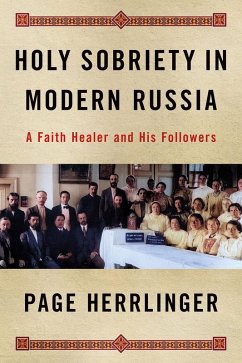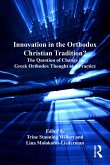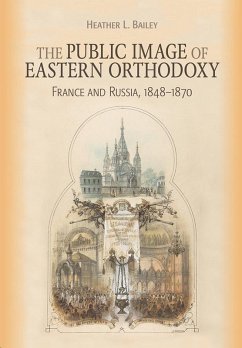Drawing on multiple archives and primary sources, including secret police files and samizdat, Holy Sobriety in Modern Russia reconstructs the history of a spiritual movement that survived persecution by the Orthodox church and decades of official atheism, and still exists today. Since 1894, tens of thousands of Russians have found hope and faith through the teachings and prayers of the charismatic lay preacher and healer, Brother Ioann Churikov (1861-1933). Inspired by Churikov's deep piety, "miraculous" healing ability, and scripture-based philosophy known as holy sobriety, the "trezvenniki"-or "sober ones"-reclaimed their lives from the effects of alcoholism, unemployment, domestic abuse, and illness.
Page Herrlinger examines the lived religious experience and official repression of this primarily working-class community over the span of Russia's tumultuous twentieth century, crossing over-and challenging-the traditional divide between religious and secular studies of Russia and the Soviet Union, and highlighting previously unseen patterns of change and continuity between Russia's tsarist and socialist pasts. This grass-roots faith community makes an ideal case study through which to explore patterns of spiritual searching and religious toleration under both tsarist and Soviet rule, providing a deeper context for today's discussions about the relationship between Russian Orthodoxy and national identity.
Holy Sobriety in Modern Russia is a story of resilience, reinvention, and resistance. Herrlinger's analysis seeks to understand these unorthodox believers as active agents exercising their perceived right to live according to their beliefs, both as individuals and as a community.
Page Herrlinger examines the lived religious experience and official repression of this primarily working-class community over the span of Russia's tumultuous twentieth century, crossing over-and challenging-the traditional divide between religious and secular studies of Russia and the Soviet Union, and highlighting previously unseen patterns of change and continuity between Russia's tsarist and socialist pasts. This grass-roots faith community makes an ideal case study through which to explore patterns of spiritual searching and religious toleration under both tsarist and Soviet rule, providing a deeper context for today's discussions about the relationship between Russian Orthodoxy and national identity.
Holy Sobriety in Modern Russia is a story of resilience, reinvention, and resistance. Herrlinger's analysis seeks to understand these unorthodox believers as active agents exercising their perceived right to live according to their beliefs, both as individuals and as a community.
Dieser Download kann aus rechtlichen Gründen nur mit Rechnungsadresse in A, D ausgeliefert werden.









